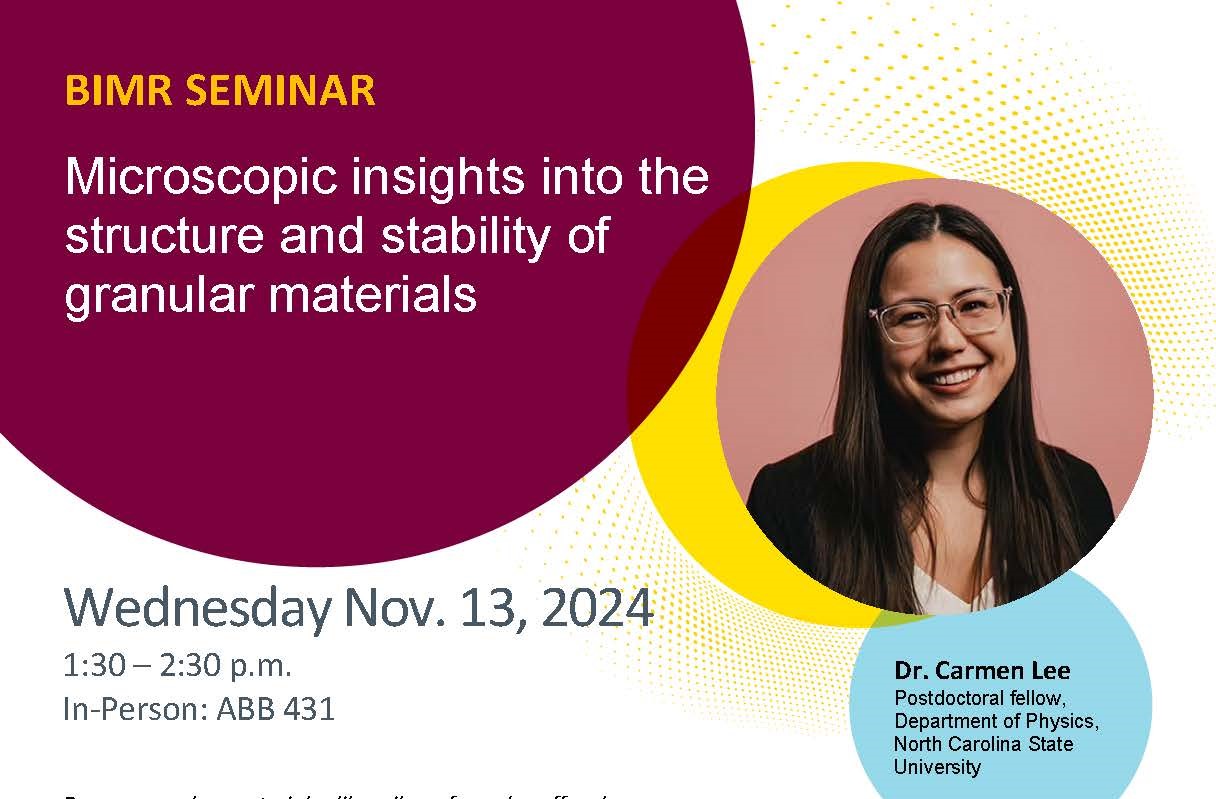Microscopic insights into the structure and stability of granular materials
Nov 13, 2024
1:30PM to 2:30PM

Date/Time
Date(s) - 13/11/2024
1:30 pm - 2:30 pm
Categories
Dr. Carmen Lee
Postdoctoral fellow, Department of Physics, North Carolina State University
Dense granular materials, like piles of sand, coffee beans, or powders, often lie at the critical boundary between solid and liquid-like behaviour. When subjected to forces like gravity or external loading, these materials exhibit heterogeneous patterns of force transmission that appear as intricate force networks. However, at the large scale, the networks are not homogeneous and often have an associated structure that depends on the loading history of the material. As well, the force networks map out rigid and floppy subregions of the material. The inherent heterogeneity of any particulate material complicates the utility of taking system-wide averages and makes continuum modeling challenging to achieve. In my talk, I will show how photoelastic granular experiments provide a way to directly observe force networks, map the structure and stability of the material, and are an idealized material to aid in understanding other particulate matter, like cellular tissue, colloids, or foams.
Bio:
Carmen Lee is an experimental physicist investigating fluid dynamics and granular physics, with an interest in exploring fundamental principles and interdisciplinary connections. Carmen is currently an NSERC postdoctoral fellow at North Carolina State University in the Department of Physics. She completed her Ph.D. in Physics as a Vanier Scholar at McMaster University in 2022 focusing on the driven flow of droplets and bubbles. She was awarded the APS DSOFT Emerging Soft Matter Excellence award in 2023 for her work on bubble chains.
In-Person: ABB 431

